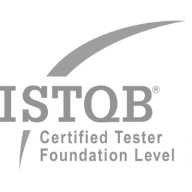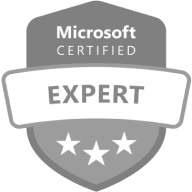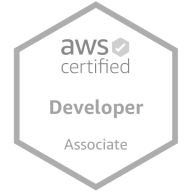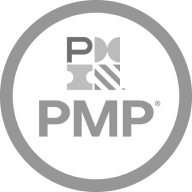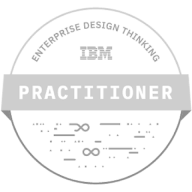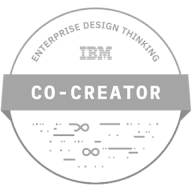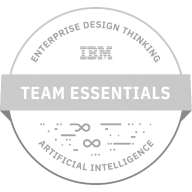
Healthcare Cybersecurity & Hospital Cybersecurity Checklist
Want to know more? — Subscribe
Hospital cybersecurity remains one of the top issues in the healthcare industry. As of 2020, 18% of hospitals stated that they spend 1-2 percent of the current IT budget on healthcare cybersecurity, and 24% hold a share of 3-6%.
Why do clinics and hospitals keep investing in cyber security instead of improving their management systems? The matter is that healthcare is an extremely sensitive area. To provide patients with the services they need, it's vital to collect information that must be kept private and safe.
Over 77% of healthcare organizations have been experiencing data breaches already. This situation may result in severe consequences for any medical center: losing patients and even shutting down the clinic.
Tom Kellermann, chief cybersecurity officer of Carbon Black, tells in the interview to HealthTech: "Health information is a treasure trove for criminals. By compromising it, by stealing it, by having it sold, you have seven to 10 personal identifying characteristics of an individual."
Stolen data can be used for many purposes, including extortion of money. Recently, CBS News reported on stealing medical records and selling them on the dark web.
However, extortion of money is not the only purpose for stealing medical records. This information creates fake IDs to buy any medical device or drugs and file insurance claims.
So how can healthcare organizations reduce the risk of data leaks?
In this article, we are going to describe the problem of healthcare cybersecurity in hospitals and clinics.
Additionally, we will provide you with a hospital cybersecurity checklist. This information will be useful for software development for any healthcare organization: clinic, hospital, or nursing center.
We will also give you a comprehensive overview of how hospital cybersecurity impacts practice and to what consequences ignoring healthcare cybersecurity may lead.
Read also: Developing mHealth app from scratch.
Reasons to Conduct the Healthcare Cybersecurity Audit
Health industry cybersecurity practices start with the understanding of the existing issue. Currently, 62% of clinics feel unprepared to mitigate cyber risks. Meanwhile, the average cost of a data breach in healthcare has reached $6.5 million.
Statista has analyzed cyber security incidents that US organizations experienced in 2020. 57% of clinics have been affected by phishing attacks. 21% have experienced credential harvesting attacks, while 20% have suffered from ransomware.
Security risk assessment can showcase the weak points and indicate the factors that may cause problems with security in the future. Any healthcare cybersecurity checklist should start with a hospital cybersecurity audit.
The main objective of this audit is to protect and secure information from different threats related to electronic documentation and ePHI. It will help you conduct a comprehensive check for vulnerabilities and develop a further plan to build a high-protected system for data byod management.
We outline 5 top reasons to conduct an audit of your healthcare facility's cybersecurity.
Identification of potential gaps in security
Cybersecurity checklists for healthcare facilities never stop to remind us: you should always be aware of the gaps in security your organization has.
Unfortunately, many clinics and hospitals ignore this problem and do not spend enough time identifying gaps. However, if you want to protect your patients' information, you need to introduce a framework to identify problems in your security.
Development of breach response plan
When improving hospital cybersecurity, organizations frequently adopt new approaches to security. For example, they start to develop plans in case a breach happens. Therefore, if the problem occurs, the hospital or clinic knows exactly how to reduce risks and negative consequences.
Staff training and awareness
Integration of hospital medical device cybersecurity systems may also require additional staff training. Make sure that anyone in your organization is aware of the problems data breaches may cause.
Create a list of strict rules and regulations on software usage. It will be a good idea to put roles on your staff with different access to information.
Preventing attacks
If your organization is permanently under attack, you need the solutions immediately. But what if you have never been into this situation? You need to start working on preventing attacks now. Always keep your software up to date and ensure endpoint protection.
Reducing the risks from third-party devices
Many organizations use third-party devices in their everyday routine. However, it's important to make sure that all of these devices are protected. It will help you to protect your portals as well as networks.
Read also: Doctor Appointment App Development Guide
Hospital Cybersecurity Checklist
Creating a checklist for hospital cybersecurity requires an understanding of two industries: healthcare and cybersecurity. 66% of healthcare organizations confess that they have problems with hiring such a specialist.
If you are one of them, our security checklist for healthcare organizations will help you make the first steps towards success.
Adopt Cloud Storage to protect your data
Adopting cloud providers, never forget to use cloud visibility and control tools to monitor cloud usage. According to the latest research, it will help reduce the number of security issues by 30%.
Get compliance certifications
Conducting in-house assessments may not be enough to run your healthcare organization successfully. In many cases, you need to pass third-party audits additionally. Therefore, you need to get all necessary certifications: HIPAA, FISMA, GDPR, and PCI DSS.
Keep all threat surfaces under control
Currently, the surface for threat has increased significantly. IoT, BYOD, big data, any mobile device: you need to ensure that any surfaces are equally covered by protecting measures.
Introduce security breach detection practice
According to an IBM report, the average time to contain a breach was 80 days in 2021. If you are not aware of your cyber security problems, you are in the risk zone. Therefore, you need to check the state of a data breach regularly.
Make sure you use Firewall
Every organization knows: security should start with a firewall. It is the basic way to defend information from any cyber attack. The firewall works in the following way: it blocks the attack, so you have a chance to prepare for it (in case you haven't developed a breach response plan).
Make backups as frequently as it is possible
The disasters happen. Cybersecurity for a medical device cannot prevent a catastrophe. Yet, you can prepare for the consequences. If you have all information backed up, you can be sure that downtime of your systems won't affect the work of your staff.
Limit the access to the system
It's vitally important to limit access to different system directories. Set the roles for your staff to make sure that anyone gets proper access. Look for a vendor who can help you with that. Currently, many providers offer a wide range of services that allow setting limits to the roles.
Check the security of WiFi
Guidelines for cybersecurity in healthcare clearly state: there should be a network used for personal goals, and a protected network should be used for professional goals. The more devices can connect to your network, the weaker the security is.
Never skip system updates
Regular updates of all systems and programs are important to keep them safe. The matter is that every update presupposes that the system automatically fixes some problems with security and detects vulnerabilities. Therefore, the protection level of your systems is high.
Personal accounts for everyone
We have already discussed the necessity to set different roles for your staff, but it is important to clarify the need to create a personal account for every employee. If you put several employees under one account, you put your hospital at risk.
In this 10-step checklist for hospital cybersecurity, we've explained key factors that have a huge impact on your organization's security.
5 Cybersecurity Best Practices for Hospitals
Cybersecurity best practices for hospitals outline the basic cybersecurity principles in all other organizations that adopt electronic records. We have defined five best practices that will help you make your hospital more protected.
Adhering to HIPAA rules is obligatory at any stage
Health Insurance Portability and Accountability Act regulates the activity of any healthcare organization offline and online and other digital health regulation organizations. Currently, any product related to the healthcare industry must be developed to comply with HIPAA rules. Otherwise, it won't be able to provide services legitimately.
Always have a recovery plan for your data
Keeping information safe and backing it up for the case of an emergency is one of the points of the healthcare cybersecurity checklist. Indeed, a recovery plan is one of the best practices for any industry that may fall victim to cybersecurity. However, a recovery plan should also stick to some rules. It is important to split up information when you back it up. Also, you need to detach it from the production system.
Control information you share with your staff
According to Forbes, 58% of all data breaches were initiated by insiders. Therefore, you must always control the information you share with your staff. You can start with managing and segregating domain names, file and folder attributes, cryptographic attributes, physical or IP addresses, and digital signatures.
Encrypt your data
Another best practice that was adopted by the healthcare industry is data encryption. Anytime data is transferred to or from your organization, it must be encrypted for a recipient to get it. Currently, data encryption is one of the urgent issues for the whole healthcare industry.
Risk assessment practice must be regular
Conducting risk assessment once in a lifetime won't help to create a well-protected information space. Therefore, you must conduct assessments regularly, especially if you have not hired an IT specialist who can take the security issues under control yet.
Hire tech company for auditing & improving healthcare cybersecurity threats
Cybersecurity for healthcare requires our precise attention. Organizations regularly face many problems: service attacks, spear phishing, malware, ransomware, and spyware usage. Fortunately, you don't need to deal with all these problems on your own.
We at Softermii can help you with cybersecurity audits for hospitals and work on any threats that may appear. Healthcare data security is one of the biggest issues we deal with when creating software and apps for clinics and hospitals. We know that data breaches can cause huge losses. We prevent any failure and invest in the protection of your data. Due to a cross-dependent modular approach, we facilitate any potential breach.
We're sure that organizations should take care of security from the first moment they order healthcare management systems or any application for a hospital or clinic. Therefore, each client gets full control over security issues during the process of software or app development.
We integrate all systems and certificates that help to run a software or app safely. Additionally, we offer our clients maintenance services to back up their data, update software regularly and detect possibilities of a data breach.
Take cybersecurity under control
Hospital cybersecurity remains one of the biggest issues for the industry. Clinics, hospitals, and nursing centers are ready to invest in developing safe and well-protected systems to prevent a data breach or any attack.
Fortunately, development companies don't leave this issue unattended. They create efficient systems that help to reduce risks and improve the security of the organizations and other interesting solutions, such as virtual nurse apps.
If you are looking for a company that can help you with cybersecurity services for hospitals, don't hesitate to give us a call. We at Softermii have a team of 100+ development experts who will take care of any of your security issues. Our DevOps team will help to integrate systems that will guarantee the protection of your data.
We're convinced: the healthcare industry requires a professional approach to the tiniest detail. We will make sure that all the trends in medical software development will be preserved, but at the same time, the security won't be affected.
Frequently Asked Questions
What are the best healthcare cybersecurity solutions?
There is no one-size-fits-all solution for healthcare cybersecurity. The best approach depends on an organization's specific needs and resources. However, some of the most effective healthcare cybersecurity solutions include:
- Endpoint security: Implementing robust endpoint security solutions, such as antivirus and anti-malware software, firewalls, and intrusion detection systems, to protect all devices connected to the network.
- Network security: Utilizing network segmentation, virtual private networks (VPNs), and secure Wi-Fi connections to safeguard sensitive data transmitted across the network.
- Encryption: Employ strong encryption methods for data storage and transmission to protect patient information and other sensitive data from unauthorized access.
- Identity and access management (IAM). Implementing IAM solutions, including multi-factor authentication (MFA), single sign-on (SSO), and role-based access controls, ensures that only authorized personnel can access sensitive information.
- Security information and event management (SIEM): Deploying SIEM systems to monitor and analyze security events in real time, helping to identify and mitigate threats before they cause significant damage.
- Regular security audits and risk assessments: Conduct regular security assessments to identify vulnerabilities and potential risks, followed by implementing appropriate security measures to address them.
- Employee training and awareness: Providing ongoing training and awareness programs for staff to ensure they understand the importance of cybersecurity and are equipped to identify and respond to potential threats.
Will the healthcare IT security software be 100% secure?
No security software or solution can guarantee 100% protection against all possible threats, as new vulnerabilities and attack vectors are continually emerging. However, implementing a comprehensive, multi-layered security approach can significantly reduce the risk of a successful cyberattack. Regularly updating security software, conducting security audits, and staying informed about the latest threats and best practices are essential to maintaining a strong security posture.
What are the main healthcare cybersecurity challenges?
Healthcare organizations face several unique cybersecurity challenges, including:
- Sensitive data: Healthcare providers store and process vast amounts of sensitive patient data, such as personal information, medical records, and insurance details, making them attractive targets for cybercriminals.
- Increasingly connected systems: The growing adoption of connected devices and systems, such as electronic health records (EHRs) and the Internet of Medical Things (IoMT), introduces new vulnerabilities and increases the attack surface.
- Limited resources and expertise: Many healthcare organizations, particularly smaller ones, may need more resources and expertise to implement and maintain robust cybersecurity measures.
- Regulatory compliance: Healthcare providers must comply with strict data protection and privacy regulations, such as the Health Insurance Portability and Accountability Act (HIPAA) in the United States, which can add complexity to cybersecurity efforts.
- Insider threats. Employees, contractors, and other insiders can inadvertently or intentionally compromise healthcare organizations' security through human error, negligence, or malicious intent.
- Ransomware attacks: Healthcare organizations are particularly vulnerable to ransomware attacks, which can have severe consequences for patient care and business continuity.
Healthcare organizations can better protect their sensitive data and systems from cyber threats by understanding and addressing these challenges.
How about to rate this article?
184 ratings • Avg 4.6 / 5
Written by:

















